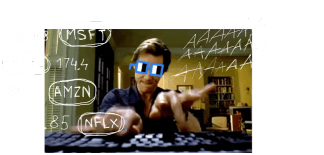🎯 What is a Trading Strategy? (And Why You Must Have One)
Do you trade without a strategy? That’s like sailing blind in a storm 🌪
📗Introduction

Imagine this:
You’re in the middle of a battlefield with no armor, no map, and no idea where the enemy is.
That's exactly how most people trade without a strategy.
In today's fast-paced and often unforgiving financial markets, having a solid trading strategy is not optional — it's essential. Whether you're trading stocks, forex, cryptocurrencies, or commodities, your success (and survival) depends on it.
This post will break down:
- What a trading strategy really is
- Why it’s critical to your success
- How beginners often misunderstand it
- How you can start building your own
📖 What is a Trading Strategy?
At its core, a trading strategy is a repeatable set of rules that guides your trading decisions.
It defines:
- When you enter a trade
- When you exit (for profit or loss)
- How much you risk
- Which assets you trade
- Under what conditions you trade
Think of it as your battle plan.
Instead of reacting emotionally to every price move, a strategy systematizes your actions based on logic, research, and historical data.
🧩 Key Components of a Good Trading Strategy:
- ✅ Entry Conditions
Clear rules for when to buy or sell - ✅ Exit Conditions
Clear rules for when to close the position - ✅ Position Sizing
How much capital to risk per trade - ✅ Risk Management
Where to place stop-losses and take-profits - ✅ Asset Selection
What markets or coins you trade - ✅ Timeframe
Are you day trading, swing trading, or position trading?
❌ What Happens Without a Strategy?
Without a strategy:
- You enter trades impulsively based on emotions ("I have a good feeling about this!")
- You cut winners too early and let losers run ("Maybe it’ll bounce back...")
- You risk too much on a single trade ("This is the one that will change everything!")
- You revenge trade after losses ("I’ll make it back, no matter what!")
In short, you bleed capital, confidence, and eventually, your trading career.
🎯 Why You Must Have a Trading Strategy
Here’s why successful traders never operate without one:
- 1. Consistency Beats Luck
Without a strategy, your results are random.
With a strategy, you can measure, improve, and consistently apply an edge.
Markets reward discipline, not randomness. - 2. Removes Emotional Bias
Fear, greed, hope, and regret — these emotions kill traders.
A predefined strategy acts as a shield against emotional decisions. - 3. Allows You to Measure and Improve
If you don’t have a consistent process, how do you know what’s working?
A strategy lets you:
1️⃣ Track metrics (Win rate, Risk-Reward ratio, Expectancy)
2️⃣ Analyze past trades
3️⃣ Improve over time
What gets measured, gets improved. - 4. Saves Mental Energy
When you automate your decisions based on predefined rules, you free up mental space to:
1️⃣ Stay calm
2️⃣ Focus on executing
3️⃣ Avoid fatigue and burnout
The less you think, the better you trade. - 5. Protects Your Capital
A good strategy includes risk management built-in.
It ensures that no single bad trade can blow up your account.
🛠 How to Start Building Your Own Strategy
Here’s a simple blueprint you can follow:
- 1. Choose Your Market
Crypto? Stocks? Forex? - 2. Choose Your Timeframe
Day trading? Swing trading? Long-term? - 3. Define Your Setup
What conditions must happen to enter a trade? (e.g., moving average crossover, Supertrend turn green, breakout above resistance) - 4. Define Your Exit Rules
Take-profit target, stop-loss placement, or trailing stop - 5. Set Your Position Size
How much will you risk? (e.g., 1% of capital per trade) - 6. Backtest It
Test it on historical charts manually or with software - 7. Practice With a Small Account
Don't go all-in; start small - 8. Improve and Adapt
After 20-50 trades, review and refine
🧠 Pro Tip:
The best trading strategies are simple.
The more complicated it is, the harder it is to follow under pressure.
Famous traders like Richard Dennis, Ed Seykota, and the Turtle Traders all followed very simple rules — but applied them with ruthless discipline.
✨ Final Thoughts
Trading without a strategy is like sailing without a compass.
Maybe you get lucky once or twice, but eventually, the ocean (the market) will swallow you whole.
But trading with a strategy?
That’s when you become the captain of your own ship, steadily navigating toward your financial goals, storm or sunshine.
- 📝 Start small.
- 🎯 Stay consistent.
- 🚀 Evolve your strategy as you learn.
Because in trading, random action is death, and strategic action is freedom.


Be the first to comment
Publish your first comment to unleash the wisdom of crowd.
